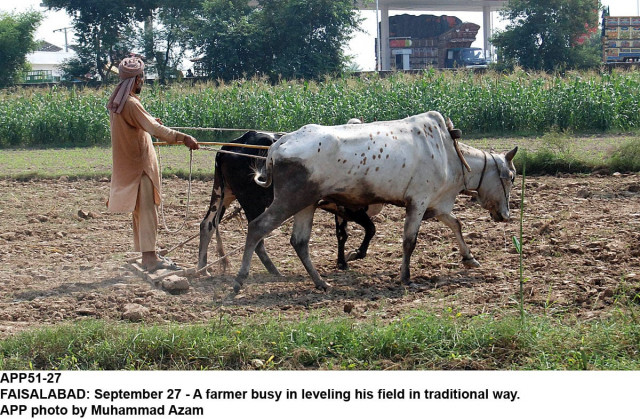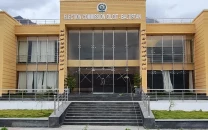Economic Transformation Initiative: Gilgit-Baltistan to make 50,000 acres of land cultivable
Agriculture project will help end wheat dependency

Dr Ahsanullah Mir, the regional head of the project, said different stakeholders and communities would be taken on board to ensure smooth implementation of the project. PHOTO: APP
The seven-year project, called the Economic Transformation Initiative, has been co-funded by the International Fund for Agricultural Development (IFAD).
“This is the biggest agri-development project of G-B and we are hopeful things will improve dramatically by the time project is completed,” said G-B Chief Minister Hafeezur Rehman while inaugurating the project.
The initiative is expected to increase agricultural income of locals and provide employment for at least 100,000 rural households in the G-B. Over 90 per cent of the regions’ population is primarily engaged in agriculture.
Terming the project a revolution for G-B, Rehman said once it is complete and farmers start producing wheat, the region will not have to go far to procure the golden grain.
“So far we have been paying millions of rupees to PASSCO as G-B didn’t produce sufficient quantity of wheat to meet its demands.”
He said that modern technology is being introduced in the agriculture sector along with incentives for G-B-based farmers to increase production.

In addition to turning 50,000 acres of barren land into cultivatable farms, Rehman said that they will also construct 400 kilometers of roads which would link farmers to the markets. Lack of connectivity is seen one of the biggest challenges to G-B’s agricultural prosperity.
The chief minister regretted that short-term projects in the past had failed to deliver the desired results in the region. He promised that his government, however, would not allow projects to fall victim to political interventions.
In his address, IFAD Asia and Pacific Programme Director Hubert Boirard said that his organization, specialised agency of the United Nations, would provide more funds if the project produces the desired results.
He added that through a process of social mobilisation, communities will be linked with the government and researchers and private sector services to enhance their current capacities.
Dr Ahsanullah Mir, the regional head of the project, said different stakeholders and communities would be taken on board to ensure smooth implementation of the project.
He said one of the objectives of the initiative is to organise small farmers and producers’ groups and devise a system to add value to the agricultural products.
Published in The Express Tribune, September 28th, 2016.


















COMMENTS
Comments are moderated and generally will be posted if they are on-topic and not abusive.
For more information, please see our Comments FAQ